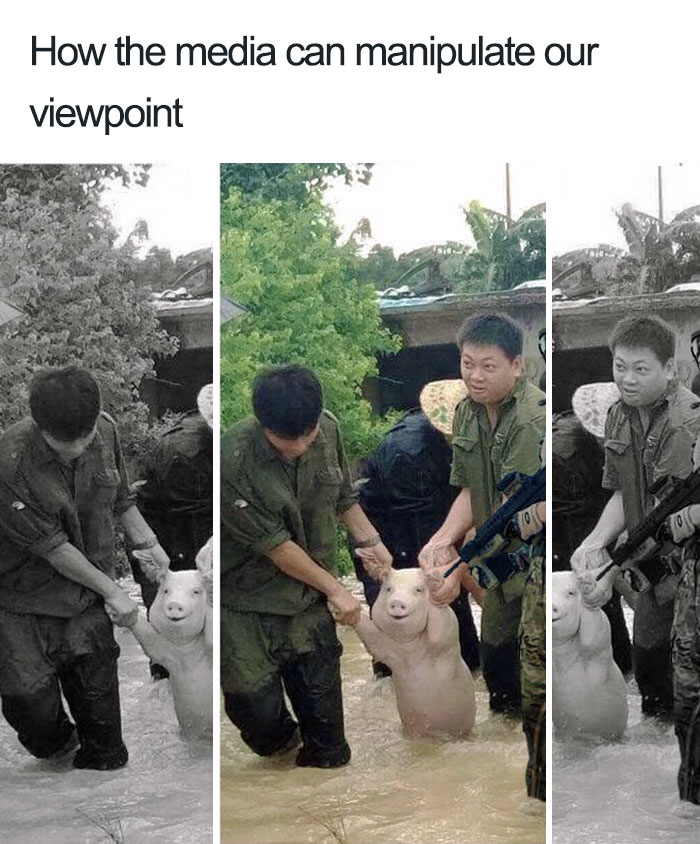The information we see on television, in newspapers, on the Internet and in the media in general can change our minds. In addition, many news is created or told in a certain way to tell us “What to think and how to think” Do you want to know how they get that control over our minds?
They say if something isn’t relevant, it hasn’t happened. The 1994 war in Rwanda is an example. The two ethnic groups that inhabited this territory began a massacre so violent that it was classified as genocide: 75% of the members of the Tutsi ethnic group were massacred, due to the appointment of members of the Hutu ethnic group as governors.
- During the first week of the genocide no European power was mobilized.
- No news has appeared in the press.
- So no one cares about the murder that is happening.
- During the second week the media began to report on the news.
- Some European countries have begun sending aid to stop the massacre.
Still, due to the lack of images of what happened in Rwanda, the news did not have as much impact as reality, so the popular impact was minimal, our emotions were not involved, so we did not pay much attention to it. That.
As we said, if we don’t have information about the facts, we won’t know what happened. As a result, the media tells us “what to think,” though we don’t always think about all the news we have. Read.
We pay more attention to this news that arouses our interest, usually the news that causes fear in people is the one that attracts the most attention, an example of this is the news that refers to a threat, such as a virus that spreads in our city or several assaults in our neighborhood.
The news from Rwanda will probably make you think about what happened there, but it’s an old fact and its repercussions will be minimal, most people won’t pay attention and worry about it.
We will think of the news that we are interested in, either by topic or relevance, and those on which we already have an opinion based on previous knowledge, or on which we immediately have at our disposal. The current information is evaluated and compared to our previous one. If we don’t have a firm opinion or if we have doubts about it, we’ll change the way we think.
If someone had an opinion about what happened in Rwanda, the news wouldn’t change her mind, but if she didn’t know anything about Rwanda or had a vague idea of what happened, the news will lead her to think in some way.
Heuristics are simple, easy-to-use rules that we use to interpret the world, in our case, they are used to interpret current events. When the news is relevant, the information is processed centrally and, as we said earlier, is compared to our previous opinion.
On the contrary, when the notice is irrelevant, the information is processed by a peripheral route, in these cases the heuristics come into play and our opinion on the fact will depend on the peripheral keys available to the news.
The fact that we consider reliable the source of the news and the reliability attributed to the writer will make us believe in the information, if readers do not trust the narrator in the fact, they will not believe it or have doubts.
The news was written in terms of war, genocide and massacre, keys that arouse negative emotions when we think today and make us have a bad image of the Hutu ethnic group, the negative burden would not be so strong if they had used the term “conflict” instead of “war”.
As the percentage of deaths was reported, the impact was greater and the news seemed more negative, if several people had written without comparing the total, the impact would be less, reporting the trigger of the genocide will make the Hutus guilty; perhaps if they had written that they had been appointed governors by the Europeans, the blame was attributed more than the Hutus.
Every word in a story is very important and will have different implications, depending on the attention and previous knowledge we have, the ability to persuade the news can be very strong if we are not aware of these mental processes. will not prevent the media from trying to control us, but it will allow us to intervene in this process.

